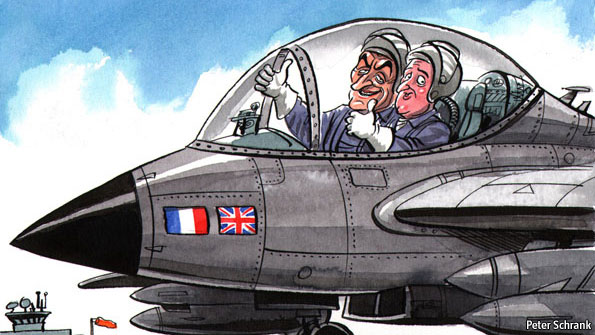
From Zaki Laidi, the Financial Times: The Libyan crisis marks the beginning of a new cycle for the two countries because the American factor is no longer a source of divergence. . . .
Of course, this Anglo-French alliance may rapidly dissolve but that seems unlikely. The two countries are experiencing economic difficulties that impinge on their military capabilities. At the same time, both want to remain seen as “hard powers” on a continent where this notion is unpopular in the court of public opinion, notably in Germany, which by abstaining from voting in resolution 1973 proved that it is an unreliable partner when security issues are at stake.
The only way to address these two competing demands is to pool resources. It is worth recalling that the Franco-British consensus on Libya was preceded by an important agreement on nuclear co-operation signed in 2010. A third fundamental factor is that Nato, which used to be a divisive issue for the French and British, is no longer problematic. The French still harbour a certain distrust of Nato, whereas the British see it as the natural framework for their interventions. But the Libyan case has demonstrated that Nato functions less as an alliance and more as a voluntary coalition. . . .
Will it be possible to go beyond this? In Libya the French and the British have implemented the principle of “responsibility to protect”. For the sake of the survival of Europe as a relevant actor on the world stage, they have the responsibility to take “all necessary measures” to keep acting in tandem.
The writer is a research professor at Sciences Po and author of Norms over Force: The Enigma of European Power. (graphic: Peter Schrank/Economist) (via atlantic-community.org)
Image: economist%203%2024%2011%20Sarkozy%20Cameron%20in%20jet.jpg
